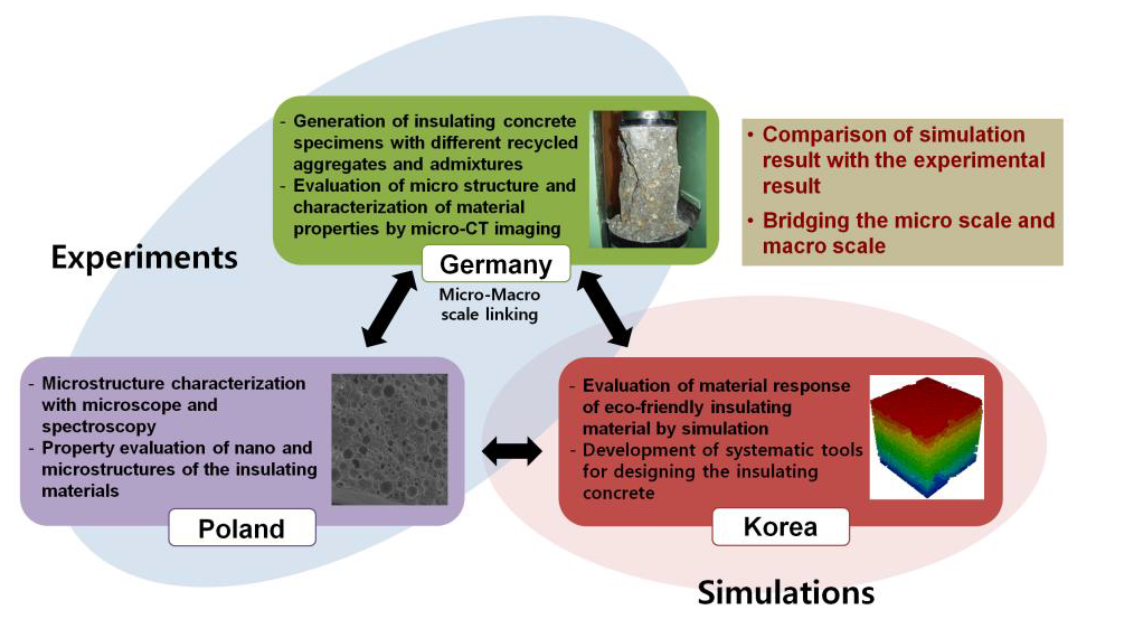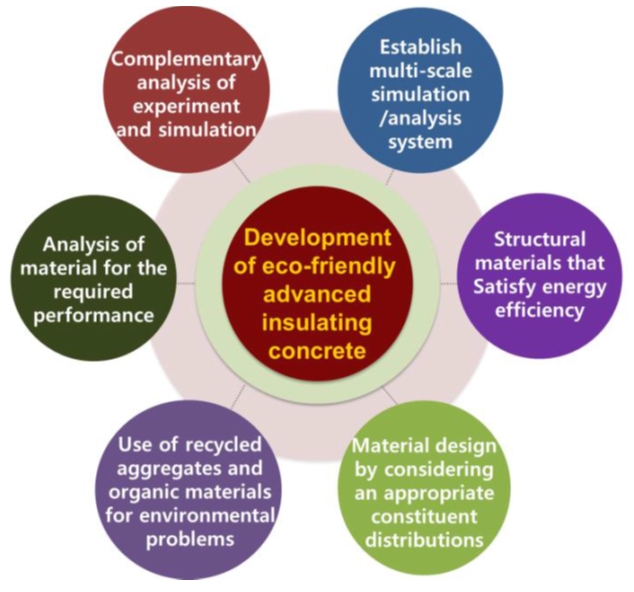Workplan
This research will be a cooperative study between research groups in the Republic of Korea, Germany, and Poland. The synergistic effects will be maximized through this collaboration project, because each research group will perform a different, complementary function (Figure 2). The study period will cover two years: the second half of 2016 through the first half of 2018. In the first year, a database of recycled aggregates and organic materials will be built. Moreover, analysis of microstructures and material properties through simulations using micro-CT images based on information in our database will be prepared. In the second year, a comparative analysis of the responses of the concrete specimen constructed using recycled aggregates and organic materials through experimentation and simulation will be performed. It is planned to verify the function of high-performance and environmentally friendly concrete by evaluating its energy efficiency. Furthermore, a tool for optimizing the performance-based design of the concrete according to its recycled aggregates and organic materials will be developed.
 Figure 2. Plan and involvement of each partner of the project.
Figure 2. Plan and involvement of each partner of the project.
We plan to suggest two deliverables. First, we will develop and generate insulating concrete using recycled aggregates and organic materials while optimizing its energy efficiency and heat insulation properties. We will generate high performance insulating concrete that can be used in construction by suggesting a value index in the reduction of energy and environmental pollution by using recycled aggregates from construction waste. Second, we will develop a multi-scale comparative tool to analyze the results of experiments and simulations. There are some limitations to carrying out several experiments. Therefore, it is necessary to use simulations to design some of the insulating concrete specimens. We will develop a bridging tool between these different methods, which can be applied in the development of construction materials. We plan to have periodic meetings and seminars to exchange information between the research groups, as well as several remote meetings over the course of the project. Expected results of the project are presented in Figure 3.
Figure 3. Expected results of the project.
 Figure 2. Plan and involvement of each partner of the project.
Figure 2. Plan and involvement of each partner of the project.
